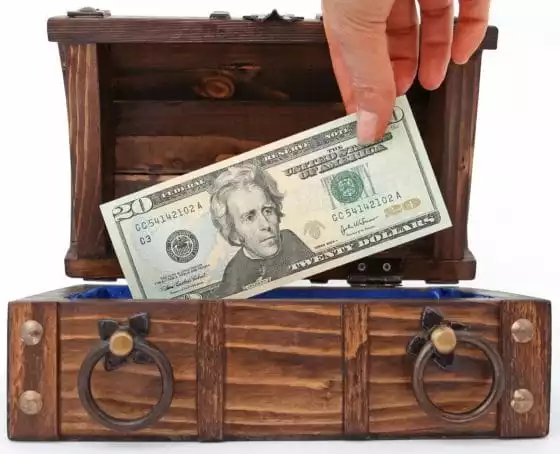California Law on Embezzlement: What You Need to Know

That’s exactly what happened in San Fernando Valley when a former board member of the Beverly Hills Chamber of Commerce conned a North Carolina man out of millions of dollars in a scam that purportedly involved high-yield bonds. The man served eight years in prison for stealing $8.7 million from the victim, and January 2017, was sentenced to to another six months for violating the terms of his probation by appearing to travel to partake in another scheme to defraud.
In California, embezzlement is considered a “white collar crime” — non-violent and involving financial gain — in which property is fraudulently appropriated by someone to whom it has been entrusted. It’s covered under California Penal Code 503, among other laws, and may be either a felony or misdemeanor, depending on how much money was embezzled.
What is Theft by Embezzlement?
Theft by embezzlement is one of the various types of crimes covered by California Penal Code 487. Generally, any property valued at more than $950 is a grand theft.
Embezzlement typically occurs in employment and corporate settings. Some embezzlers steal all the money intended at once, while others steal a small amount over time.
Common embezzlement schemes are:
- Fraudulent billing
- Records falsification
- “Ponzi” or pyramid schemes
Certain elements are necessary in order for the crime to be considered theft by embezzlement. Those found guilty of embezzlement may face several charges, each with a penalty of up to three years in prison. Following prison time, a convicted embezzler may expect a period of court supervision. This is to ensure that the offender does not repeat the same or similar crimes.
Repeat Offenders are Common
Repeat offenders are actually common in investment scams. After the offender completes his prison time, he may try to take his scheme to another location where he may go undetected.
Embezzlement often involves the commission of several crimes. In the case of the San Fernando Valley man, the criminal activity involved embezzlement through high-yield bonds. Because he embezzled money from an out-of-state victim, he was found guilty of interstate transportation of stolen property as well as money laundering. The embezzler reportedly offered a $10 million investment opportunity to the victim, but that money ended up being used for personal expenses for the embezzler and his girlfriend, including the purchase of two lavish homes and five high-end automobiles.
The offender in this case was ordered to spend more than eight years in prison, which was to be followed by a three-year probation period. But he violated the terms of his probation when he traveled to the Ivory Coast without permission. The man was found to be taking the trip to engage in further embezzlement activities, violating the terms of his parole almost immediately after his release from prison. He was prosecuted for a probation violation and sentenced to an additional six months.
How to Prevent Becoming a Victim
The U.S. Securities and Exchange Commission offers some advice on how to identify the warning signs of a Ponzi scheme and avoid becoming a victim. There’s also good information available through the SEC on pyramid schemes, which are a type of investment that’s actual a multi-level marketing program typically revolving around making easy money online or from your home.
To defend yourself from a Ponzi scheme, make sure to ask these questions before investing a large amount of money:
- Is this a high investment return with little or no risk? Beware of any “guaranteed” investment opportunity.
- Are there overly consistent returns? Regular, positive returns are suspicious, as overall market conditions change investment values over time.
- Does this involve unregistered investments and/or unlicensed sellers? Make sure the investment is registered with the SEC or state regulators, as well as the professional or their firm.
- Are the strategies easy to understand and accessible? Anything that’s too complex or secretive is a bad sign. You should also be able to review information about an investment in writing.
- Have you not received a payment? Seems like a no-brainer, but Ponzi scheme promoters often encourage investors to roll over their investments to get a higher return.
Penalties for Embezzlement
An offender who commits embezzlement may be breaking various laws. For example, in addition to embezzlement and grand theft charges, the offender may commit other crimes such as money laundering and transportation of stolen property. The offender may accumulate many counts which, if found guilty, could result in a lengthy prison sentence.
Additionally, the guilty offender may be required to repay money that was stolen, and will need to be supervised after being released from prison.
If you’ve been accused of embezzlement, you have the right to be presumed innocent under the United States Constitution. You also have the right to be heard through an attorney during court proceedings. A skilled and experienced criminal defense lawyer obtained through the San Fernando Valley Bar Association’s Attorney Referral Service may be able to help.
Are you in search for a certified attorney to represent you?
Let us help you find one today!



